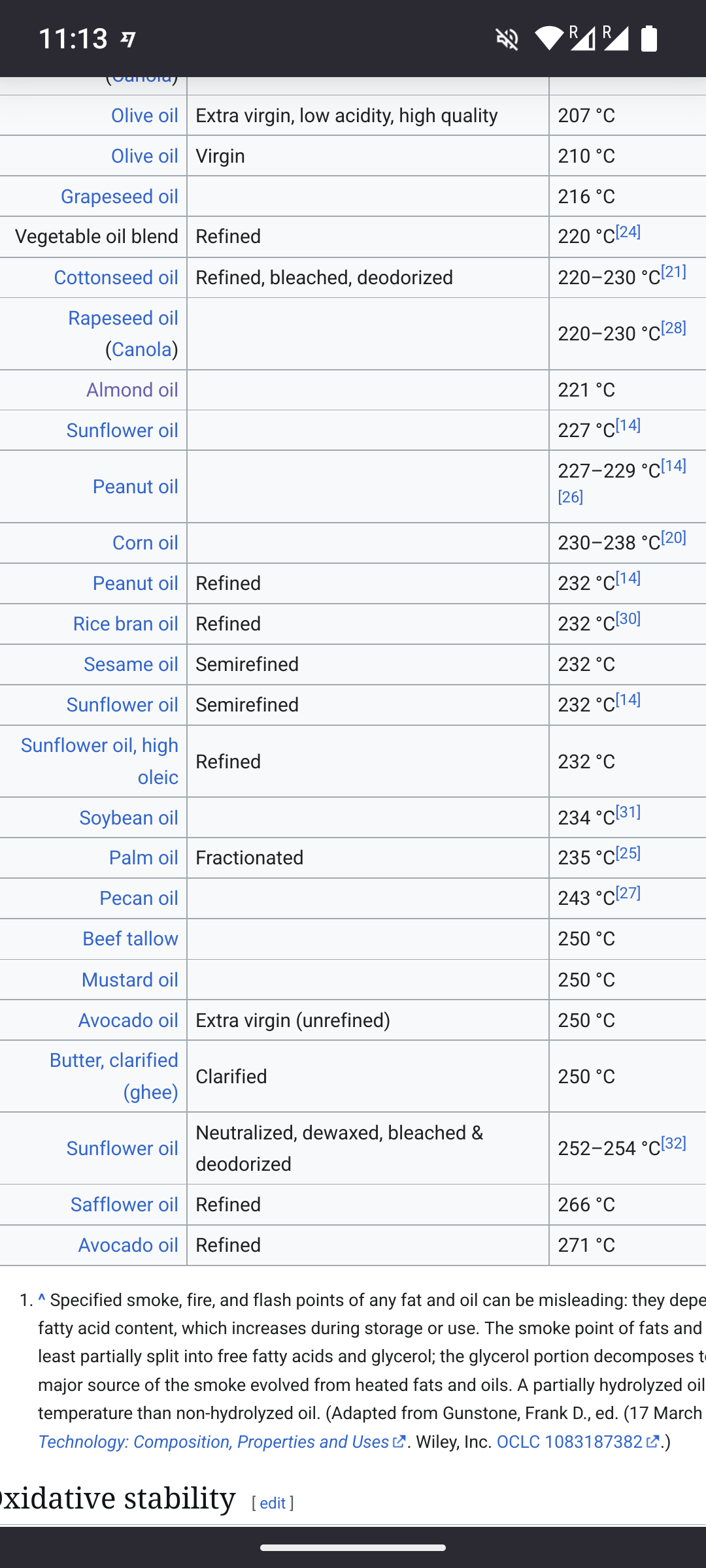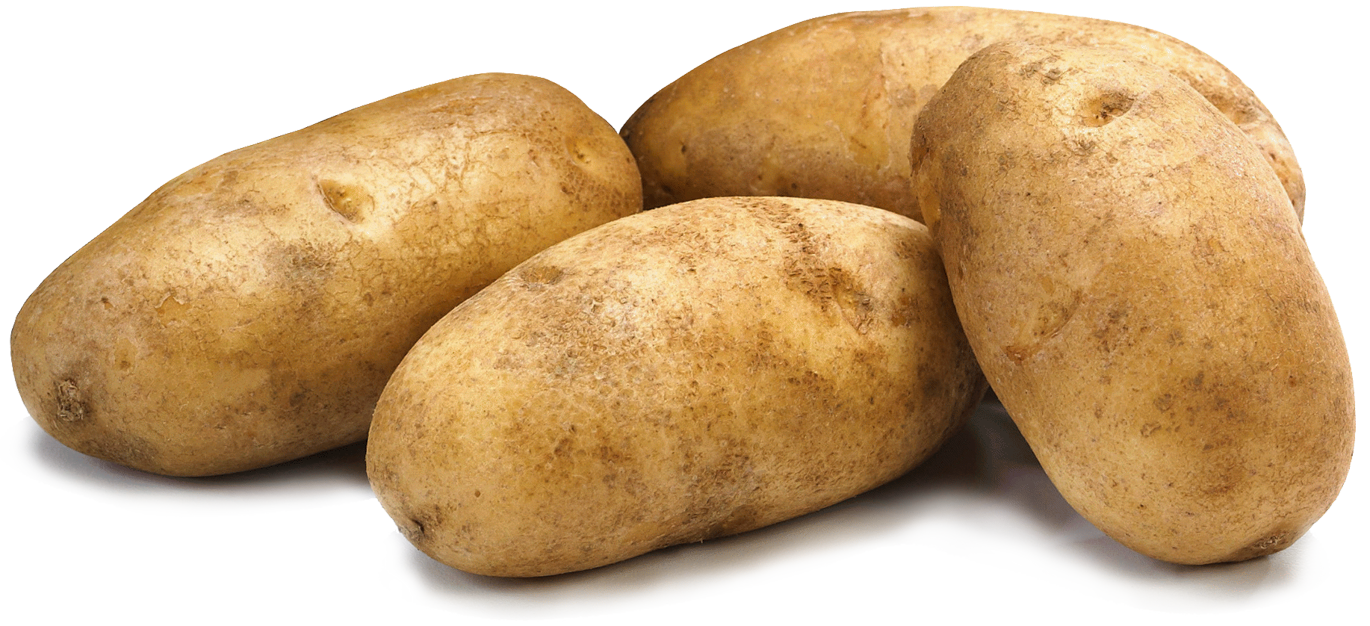Clean it, don’t clean it, oil it, salt it, water it, “season it”, season it by not cleaning it so your french toast gets all that good hamburger flavor from the night before…
I’ve read so many different ways to treat cast iron that at this point I’m convinced that it’s all just superstition.
Don’t let water touch it or it will bring you 7 years of bad luck
Darn. I was hoping they’d reproduce when you get them wet. Time to try feeding it after midnight.
If a black cat crosses its path food will stick to it for the next seven years.
I’ve always just been taught to use boiling/hot water and scrub it, dry it immediately after, and then put some oil on it so it doesn’t get dry. Never had any issues.
NO. NO MORE INSTRUCTIONS.
I’m washing it with Himalayan salt, hanging it to dry in the sunshine, then storing it under my bed in a wicker box just like my great grandmother taught me!
That salt better be pink or you’ve been doing it wrong this entire time.
Source: My Great great grandmother.
Thats basically what I’ve been doing all this time too.
It is, I literally just cook in mine, don’t baby it, scrape the hell out of it with a heavy stainless steel spatula and use a paper towel to get out anything. If stuck bits of food, they get scrapped, then water and soap. Then just oil the pan and rack it again. None of that silly shit. Just use the damn thing.
Exactly. Just soak it in bacon grease, let the cats lick it dry overnight, then bury it in loamy soil under an orange tree during the full moon. So easy. I’m not sure why anyone doesn’t use cast iron.
At first you’re gonna boil them. And after tha t you’re gonna mash them, then you can choose to stick it in a stew.
Po-tae-toes
Leave it outside for 2 years, use acid and scrubbing to get the rust off, reseason. Good as new!
Why would you wait two years when you can just melt it down in a crucible and re-cast it after every use?
Why not just do your cooking directly in the crucible at that point? I heard it’s great for pizza
I wash mine with soap and hot water, then dry and rub a bit of cooking oil on it (high smoke point oil, not olive oil).
I’ve built up a pretty substantial amount of seasoning on mine though. One of the ways to recognize that is that when you’re rinsing it out after washing the water should just bead right off, not wet the surface. Any areas where the water wets the surface could use some touch up seasoning. A well seasoned pan should be nice and hydrophobic.
NO. NO MORE INSTRUCTIONS.
I’m scraping it with a boar bristle brush, drying it with a traditional Japanese paper fan, then storing it in a nearby cave just like my uncle taught me!
I think you’ll have the best experience if you learn what seasoning actually is and what it isn’t. Seasoning is polymerized cooking oil that’s bonded to the surface of the metal. It’s hydrophobic which protects the metal from rust. It does not actually give nonstick properties (those are due to cooking oil and proper temperature control).
Seasoning is not burnt food, it’s not black, it’s not dry, nor does it leave marks on your finger when you rub it (only do this with a cold pan). A well seasoned pan should feel smooth and glossy and hard, not dry or powdery or gummy or sticky or greasy. When seasoned properly it does not need anything else applied, though most people apply a thin layer of oil as an extra precaution and because the oil improves the glossy appearance.
One thing to be aware of is that overheating your pan will burn the seasoning, carbonizing it and turning it black. A burned seasoning is vulnerable to flaking off and adding charred flavours to food, as well as exposing the pan to potential rust. Lastly, exposing the pan to acids (such as white vinegar or simmering tomato sauce) will strip away the seasoning (and ruin your sauce).
As a hydromomie, i always die a little inside, when i read the word hydrophobic.
TIL it’s even worse when actually typing it out.
high smoke point oil, not olive oil
Olive oil has about the same smoke point as many standard cooking oils. It’s a common misconception that it’s not suitable for frying.
Only if it’s refined to remove all the suspended solids. When most people think about olive oil they think of EVOO which has a low smoke point and turns very bitter if overheated.
Again, this isn’t true. Extra virgin olive oil of decent quality has a smoke point similar to canola oil.
Do you have a citation for that claim? It’s pretty well common knowledge that EVOO is a lower smoke point than typical refined cooking oils.
Google it
I did and all the links back me up and contradict you.
The chart at https://en.wikipedia.org/wiki/Smoke_point would disagree
No, at least read it properly before commenting.

207 as opposed to 230-250 for the oils people typically recommend (rice bran, peanut, refined sunflower, ghee…) and 270 for avocado. Sounds lower to me.

Edit: oh you were talking specifically about canola. Well, since they put mustard oil (basically the same thing) at 240 later, I’m not sure about that number, but yeah maybe specifically canola is also not great.
Yup, just go with stainless steel. I wouldn’t recommend teflon coated pans anymore, because it’s literally poison.
It’s not about teflon, but the chemicals used to attach this (or any other) extremely non-sticky plastic to a pan.
Imagine the kind of chemistry needed to make a thing that a cooked egg slides off on it’s own stick to a metal surface in high temperatures.
* This is mostly incorrect, I don’t want to spread misinformation.Teflon is otherwise inert and shouldn’t have health implications on it’s own (that we know of).
Obviously I’ll still avoid ingesting any more plastic myself, as much as I can help it. Not suggesting anyone chews on PTFE tubes.
No, it’s about the Teflon too. Teflon becomes chemically unstable around 400-500F, temperatures well within the reach of a modern home oven or range, and releases polymer fumes that are damaging to your health.
Check out this amazing video all about Teflon. I know, nearly an hour long… Worth it!
Fascinating and scary how poorly regulated it still is today.
I was also wrong about how teflon is joined to cookware. I don’t know where I got that from.
As long as you’re not cleaning with lye, soap is generally fine. But if you’re going to be a bit lax on cleaning, the only real downside in my opinion is potentially introducing flavors you didn’t intend.
I think for the most part, you do you. If it looks visually fine, it’s probably good enough.
I’m just going to keep cleaning mine with three drops of goat’s blood, drying it with a linen towel, then storing it in a humidity-controlled cabinet with the handle pointing north, just like my guidance counselor taught me.
You don’t rotate the handle in sync with the precession of the vernal equinox? Your cast iron’s going to be fucked when the age of Aquarius begins. I’ll bet the Priestmunty who proclaimed your pans wasn’t even a bake-borne by the eight transcendental Broilers of Avalon. Poser.
what about hydrofluoric acid? can i use that?
I put a little water in it, turn the burner on, and scrape it with a spatula as the water boils. Rinse out and paper towel dry. Add a little oil if it needs it, heat again, and wipe off the excess.
I wash mine in holy water, then dust it with volcanic ash from the 1980 Mount St. Helens eruption, and wipe it down with a felted angora cloth, just like my mother taught me.
I’m noticing a severe lack of chants and prayers in your routine. And where’s the incense?
Noobie mistake, you need to say you learned it from your nonna
I also have performative masturbation rituals
Involving the cast iron or in addition to?
Normally I wipe it with paper towels while it’s still hot, they go in the compost. Then I put a teaspoon of cooking salt in the dry pan and scrub it with another paper towel.
My theory is that what little grease is left behind absorbs so much salt that it becomes destructive to bacteria.
I buy cooking salt in big 5kg bags so it is dirt cheap and costs basically nothing to do this.
I scrape the crud off while it’s still hot and then rinse it with dish soap and water. Never had an issue.
NO. NO MORE INSTRUCTIONS.
I’m cleaning it with an industrial angle grinder, seasoning it with crushed up dandelions, then storing it under my pillow just like my couples therapist taught me!
That’s all fine but if you do this over long weekends then you don’t deserve cast iron.
A lot of it kinda is. Sure there might be some optimal option. But its a fucking frying pan. It can manage being mishandled a bit too. Just don’t drop it as you might damage your floor after breaking your feet.
Scrubbing under running hot water has worked fine for me. I occasionally use boiling water if there is grease that doesn’t want to move.
I scrub mine with a Scrub Daddy in a nearby waterfall, then dry it by tying it to the roof of my car and driving around for a bit. Haven’t had any issues yet!
For those who don’t know, you can wash cast iron with modern detergents, and as long as you dry it properly you won’t have any problems.
It used to be that dish detergents contained lye that would strip the seasoning off of cast iron cookware.
Yep, which is why of you ever want to strip and re-season cast iron, you use a lye bath with some electrolysis magic. Do that once and you’ll see why back in the lye soap days, you
wantweren’t supposed to wash them.PSA be careful buying lye. It has other uses than soap making, including stripping of carcasses to the bone, and then turning the fat into soap. If you order enough you might get a visit from your friendly government agent.
Corrected as to what it does.
lye (sodium hydroxide) has all sorts of uses and for cleaning your pan you don’t need it dry. Just buy a cleaning agent containing it.
It is one of the most used chemical products and i strongly doubt that anyone having normal uses for it will ever get a government visit.
It depends. Usually no, but if there are any mysterious disappearances in your area, a person that has recently bought large amounts of lye will certainly be questioned at least.
Why would you do that? For getting the cast iron pan completely clean, just use oven cleaner or furnace glass cleaner. They contain sodium hydroxide and are meant to deal with burnt in residues.
There is no reason to buy dry lye for that, leave alone a large quantity.
The first rule of
fight clubproject mayhem is…It doesn’t turn bone to soap, it turns fat to soap
You are correct. Edited my post. My wife use to make soap so I knew it was caustic and I think she could only order limited amounts at a time or something like that.
throwback to this amazing scene from Four Lions
“Bleach scene”
That’s why I buy all my lye through my LLC, Bone Soap Co.
Why is this answer always so far down in the thread, right below all the nonsense and superstition that perpetuate the “cast iron is really complicated to maintain!”?
Soap and water is all you need, be sure to thoroughly dry the surface. If you get rust spots, just polish them off with a cast-iron cleaning sponge or some steel wool. Re-oil as necessary. Do not put in the dishwasher.
That’s it. Not sure why the message gets so muddled with other methods involving stripping and reseasoning and baking and such… It’s not required.
If you use regular dish soap (i.e. dawn), you most certainly can (and should) wash it. However, the trick is that you absolutely must dry it, put a light coat of oil, and then bake it to keep it from rusting. I preheat the oven to 450°F and then turn off the oven, and let the pan sit until it’s cool enough to the touch to put away.
If it’s seasoned you don’t have to oil it. Just make sure it’s dry.
That’s fair. I have a Lodge, and I ground down the inner surface so it’s flat, so I had to re-season it.
~I guess I can probably stop re-seasoning it now. 😅~
Nah, if you are doing properly thin seasoning you really can’t overdo it.
I have a lodge set of pans for the last 15 or so years and you can tell which ones are most used because they are flat and the less useful to me sizes are all still bumpy. I think over the years I’ve eaten a bumpy surface worth of cast iron off several pans
I mean, iron is a part of our nutritional diet. 🤣
I have the h&h of a Sherpa after a marathon. I breathe three times a minute. Sometimes i rust a little if I don’t put lotion on right after the shower.
Unironically starting in the mid 40’s Norway began to add iron to their “Myseost” as they didn’t use ironpots to make it anymore and myseost was a substantial part of their diet.
I ground down the inner surface so it’s flat
I have heard you’re not really supposed to do that - the texture helps the seasoning stick properly instead of flaking off.
Most vintage cast iron pans were ground flat, they only stopped doing that as a cost saving measure later on.
My vintage flat cast iron pan from the 30’s keeps its seasoning just as well as my modern one, and is a bit more non-stick compared to the modern ones.
What determines if a seasoning will flake off is mostly due to the type of oil used to create the seasoning. Flax seed oil will create a much harder seasoning, but it is the most prone to being chipped or flaking off.
Most other types of fat, like Crisco (don’t cook with it!) or canola oil, will produce a perfectly good and resilient seasoning on smooth or bumpy cast iron.
Wait, why shouldn’t I cook with Cisco?
Update! So the new Crisco uses Intersterified fat, which this study suggests promotes weight gain, increases blood sugar levels, and stresses the liver.
It also is now mostly made of Palm oil, which means buying it inadvertently supports the burning of rainforest for palm oil plantations.
Thanks!
From the studies I’d read on the new formulation, the thing they’re doing to it to keep it solid at room temperature seems to also be very unhealthy, even if it no longer has trans fats.
It’s been quite a while since I read them, so I can’t recall the name of chemical or process that’s harmful (agh!)
I’ll see if I can find it.
There are a lot of pits in the surface of a Lodge. It’s much better now and food doesn’t get stuck as often. I guess it’s a preference thing. 🤷♂️
Depends how well you clean it, and what you cooked.
If you made bacon, sure. Perfect seasoning and water and a sponge won’t dry it out.
That’s not how many other foods work, though. I almost always put a bit of oil back on it, then heat it up to preserve the pan. I can cook eggs, pancakes, or really anything on it any time with this treatment. It’s literally better than any non-stick pan.
I have cooked on a cast iron pan daily for decades at this point. I never oil it. It’s fine.
But internet guy says you’ve been doing it wrong this whole time. Why won’t you completely change your ways based on the comment of pedantic rando?
You don’t necessarily need to do that every time. The thing about cast iron is that even if you actually “ruin” it, you can just redo the seasoning.
So it’s fine to be a little lazy about it. The one thing you want to avoid is rust, as you mentioned. I wash mine with a tiny amount of soap involved and most of the time I just dry them off with a paper towel. If I put on a coat of oil, I leave the pan on the induction stove for a bit, with the stove timer on. Easier than the oven.
Only if the seasoning looks like it might need a couple more layers, do I go the oven route.
Yes to oil and stove.
Totally forgot about the stove timer thanks!
It’s easier than this. Wipe/scrub the excess off, then simply put it on the stove for 2-3 minutes and wipe oil onto it.
Saves you some gas and time. So far it’s worked perfectly for me for over a year.
This is the way. People make cast iron sound hard to maintain, but I’ve been doing this for a decade or more and it works great
I just cook bacon any time I need to re-season it. Lol.
how do you know when someone abuses animals don’t worry they never stop telling you ha ha ha
That pig was already bacon Jerkface. Delicious delicious bacon… okay! You’ve won this round! But next time!
no i’m pretty sure you have to personally kill a new pig any time you want bacon
I’ve been a lazy ass and just leave it dirty until I’m gonna use it again, wipe it down with soap then cook. Prevents it from staying wet at least.
I just wash with water and stove-dry it
Sameish. I thought soap was supposed to damage it. I boil water, use a metal spatula to help lift anything stuck on there, dump the water, wipe it dry, then add oil and wipe it one more time and leave it on the stove so it’s ready to use again.
I’ll be honest, I still don’t really understand what “season” means, but I’ve been doing that several times a week for like ~7 years now without any issues (that I’m aware of, I guess).
My - admittedly naive - understanding of seasoning is that you’re creating layers of dried oil that a) protect the pan, 2) make the pan nonstick without having to always use excessive amounts of oil, and iii) depending on what you’ve cooked in the past (i.e. bacon or other flavorful foods) will leach into your food and give it a yummy unique flavor.
Personally I usually just clean it with a paper towel, and put it away. Mine is almost exclusively a cornbread pan, though, so I’m mostly cleaning excess oil unless I fucked up and it stuck.
Occasionally I do give it a proper wash like you’ve said, but not very often.
Yeah just wipe it with a damp paper towel and it’ll be good. People overcomplicating things.
I just dry and lightly oil mine. I only bake them if they need it.
I had a roommate that did this. Except their reason for not cleaning it was that they thought all that stuff leftover was what is called seasoning. AND they wanted the cast iron seasoning to flavor their dishes.
I tried to gently explain the misconceptions, but they believed their grandma instead of me.
Which is apparently why burritos from old-school eateries taste so good: they don’t wash the griddle, and the secret sauce is the essence of the entrails of generations of pigs and chickens
gags in Gordon Ramsay
At least it’s not raw
That least touches an open flame.
They don’t scrub them with soap and water, but they do scrape them clean with a razor sharp spatula after every portion is cooked.
This sounds like BS. I can’t tell the difference between a burger cooked in my cast iron vs. an ordinary skillet. Once, there was a lingering odor of turmeric from a scramble I made, and I think some of the flavor got into food I cooked afterwards, but it didn’t last.
Fuck. This isn’t true?
Every time I see an older person’s cast iron, it’s covered in that charcoal black garbage that they think is seasoning. Hopefully whoever inherits them strips and reasons them, but so many people have this “wisdom” passed down to them that I kind of doubt it.
Honestly, depending on the specifics here, not the worst. If they’re using an oil that will polymerize, then as they oil/heat/cool cycle it, the seasoning will further develop over time, as long as they’re somewhat scraping off remnants of their cooking as they finish, leaving it as clean as it can be without actually washing it, and then heat cycling it to sanitize any bacteria that might be there, I don’t really see a problem with it…
It’s not exactly up to modern hygienic standards, or social standards… And I’m pretty sure if any restaurant or food joint did the same they would get shut down by the health inspector before long… But you do you buddy.
For anyone not in the know, the thing with cast iron and cleaning is no longer a problem. Clean your cast iron. When cast iron was just about the only cookware, soaps included lye. Lye will erode the non-stick “seasoning” on cast iron. Modern soaps do not contain lye, so go ham.
Cleaning, however, introduces water… And water causes iron to rust, so it is generally advisable to clean your cast iron cookware, then immediately heat it up past the boiling point for water, to vaporize any liquid water and carry it off the surface of the iron. Once past that temperature, let the cookware cool, then treat it with a thin layer of oil. This will protect the surface from atmospheric moisture and allow the cookware to work over much longer periods of time without needing to be “re-seasoned” (which is removing the layers of polymerized oil on the cast iron, and then re-applying it using a slow method of oiling, then heating the cookware, allowing it to cool, oiling then heating again)…
Don’t be afraid of cast iron, it needs a little more attention than other cookware, but it’s a joy to actually cook with.
I’ve got a ceramic and it has all the advantages of cast iron without the disadvantages.
My ceramic pan isn’t even close on nonstick properties, it can cook eggs but needs more oil than cast iron. My smithey cast iron is king, so smooth the eggs slide around by default.
Yeah I feel like people who say that about ceramic haven’t cooked on well-seasoned cast iron. Both of my cast iron pans are nearly as nonstick as Teflon, and eggs slide around like you said. Cooking runny-yolked eggs on my ceramic is a pain without an egregious amount of oil though.
Ceramic coated cast iron is very nice.
No it doesn’t. They cost more and everything I see says that you can’t use metal tools on it.
It did say you can on this one, so…
Not sure about the soap thing. It definitely strips more of the “seasoning” than just water in my experience. And it’s my understanding modern dish soap contains some synthetics, and cast iron is very porous (I use the cheap kind, I think the kind for camping, lol), so I avoid soap. I just use very warm water and sometimes mechanical means (stainless steel scrubbers) to clean my cast iron. Tbf, just cooking very fat/oil heavy stuff restores much of the seasoning whenever it’s lost.
So I HAVE to cook this bacon to fix this pan? Oh noooo 😏
Yep, its required. Best do it again for good measure.
I don’t know if that thick amount of oil would polymerize well though, you want a thin layer for that.
Afer work, I once made dinner for my housemates. After the meal, one of the housemates was like: “if you cooked, you gotta wash the dishes!” ok, so I washed the dishes. After the dishes, the housemate was like: “If you used the cast-iron pan, you have to ‘season’ it with oil!” and I was like: wtf I worked all day, I cooked, I did the dishes, now I have to cook again just to make the pan happy?!? So I never used a cast-iron pan again.
“if you cooked, you gotta wash the dishes!”
I’m sorry, what? That’s how you ensure that nobody ever cooks for you again. If you cooked for you and your housemates, everyone else who ate your food has to wash the dishes, excluding whoever bought the food. What fucking backwards culture did this guy grow up in?
Yeah I was confused by that as well, that’s some entitled shit.
Yeah, I wouldn’t have minded if we’d all washed the dishes together. iirc I never cooked for them again; I brought take-out once for a special occasion, but I told them to eat out of the containers bc I wasn’t doing their dishes.
In my world, that housemate would quickly become a houselessmate.
Weird that he’s still your mate though. And not just somebody that you used to know.
Well you didnt have to cut him off, make out like it never happened and that they were nothing.
We use cast iron every day in this house. My wife is scrubbing a pan behind me right now. And no, we don’t oil it either.
I eventually learned that. tbh I think I just associate cast iron pans with that annoying former roommate.
I judge the need for oil based on the shine of the pan after cleaning.
Just fried chicken in a fair amount of oil? Dump the oil, wipe, rinse, dry, back to bed in the oven.
Did I cook something that left a residue? After hot water and maybe some salt to scrub if the finish looks flat, I’ll rub on a little oil.
I would cut these people off so fast if they said that to me, don’t try to please everyone so much
Just leave it on the stove on maximum heat for one hour after each use, then chip off the carbonized chunks of asphalt that you’ve just created. 100% sterilized, no washing required, and smells just like your big bad diesel pickup exhaust.
You forgot the first step of turning off your smoke alarm, and also leaving the room unless your a pack a day smoker with lungs of steel
Eh, just turn up your stereo and open a window. You’ll get used to the smoke.
Seriously, what’s with posters these days! I used to smoke 20 pans a day in the 90s
Don’t have a smoke alarm in the kitchen so its ok.
Any pathogens would be cooked anyway.
But more likely to ingest benzopyrene which can be carcinogenic
The toxic stuff is what bacteria leave behind, and you can’t cook that out.
You literally can
Please try cooking out the toxins from some chicken 2 weeks past it’s use by date and let us know how it goes.
Doesn’t it just all turn into carbon at some point? Not sure how tasty that would be though.
But for the pan its going to be mostly a thin layer of oils, guy should at least give it a good wipe with a cloth though even if nothing else.
by the time the pathogens turn to carbon, you’ll basically just be left with a lump of charcoal though
I feel that was heavily implied already.
That’s the joke.jpg
Yall need the The Food Lab better cooking with science book by J. Kenji Lopez-Alt. He has a whole section on proper cleaning and seasoning of a cast iron skillet.
Kenji could write an article on literally anything and I’d take it as gospel. Could tell me the best way to drive my car was with one eye closed, and I’d be pirating the next day.
This book is so informative. I got his other cookbook, The Wok, and now sing the praises of that versatile cookery ever chance I get.
I have that ond to soon as I saw it.
So if you just wiped it out with a paper towel, how many years do you think one could go before getting actually sick? I’ll volunteer to be a test subject if I find a cheap cast iron. Apparently I’m supposed to get away from my non stick pans anyways
Most likely if you use it every day and wipe really well the heat would kill anything that would make you sick. The oil will add slowly to the seasoning, but the surface will have some wet oil and carry some strong flavors forward and make your food taste less appealing. It would be the pan equivalent of overused oil in an oil fryer.
If you cooked steak and fish and vegetables the old rancid fish and meat flavors would end up influencing the vegetables in a bad way.
You don’t like your cornbread to taste like fish?
Old rancid fish even!
Not a scientist, but most microbes can’t live in pure oil or grease. So If you get the food bits out, the oil itself will go rancid and taste awful before becoming actually dangerous.
It’s not the microbes themselves but the toxins they release when they die
Tetanus, botulism, Staph. They’re not bacteria itself but the leftover when bacteria die. So those toxins can build up on surfaces if not cleaned.
Bacteria that can not grow can not produce anything.
deleted by creator
Without it being alive it should just pass through the body though right? Because any of the stuff in the pan was killed during the cooking process. Itd be hard to cook anything in a pan that’s not heated
Poisons don’t have to be alive to hurt you.
The microbes need to be alive to produce them when you finish using the pan it’s hundreds of degrees so the bacteria are dead
The microbes are dead but they leave behind the toxins which require greater heat to denature.
That’s why there are warnings about reheating some foods over and over. There’s minimal bacterial growth, then the bacteria is killed in heating sto safe temp. But the bacteria leave behind the toxins. Reheat and you get bacteria growth again before death increasing the number of toxins. Keep repeating and you have a dangerous level of toxins despite no living bacteria.
That would be true if first you ignore the effect of heating the pan on depyrogenation (killing of the toxins) which happens at approximately 250C which while hotter than your food that’s filled with moisture will get is reasonable for a cast iron pan to get to during both preheating and drying
2nd you assume the toxins accumulate over time, which they wouldn’t because the microscopic amounts still in the pan will leave on the food and with a cursory wipe of a paper towel
The reason it’s a concern with food is because if your food gets to 170F it’s considered overcooked so it never fully sterilizes and doesn’t depyrogenate but it’s not unusual to get a cast iron pan to 500F which does both.
If you ever worked in a field that does sterilization you will learn the differences between cleaning, sterilizing, and depyrogenating
To tack on, acidic foods break down the finish and create allow the creation of rust. If you skip a few days of cooking on a pan with a pocket of rust filled with unwashed food, you might get something dangerous brewing. But scraping out the pan and cooking frequently, you could probably go the distance.
For additional reading, they can look up regulations on marrying bottles of condiments.
I’m way too lazy to clean my singular pan. There is exactly zero harm in that. Don’t let food rot in it and you’re good. Microbes need water, so you can let a sensible amount of remains just dry.
I mean your average Griddle is not cleaned to the level of an indoor cast iron and yet we do not get more sick from them. And the average indoor cast iron is going to be more dirty than your average skillet.
The only way years would change anything would be in how immunocompromised are you at your old age?
99% of all the old “don’t wash cast iron!” shit you hear is antiquated information from back in the day when they used lye for soap.
There is absolutely no reason today to not wash your cast iron today. That doesnt mean you always have to, though. Often just wiping it out with a damp rag is more than enough, and if you have a lot of really stuck on shit… You can scrub it with a slurry made up of salt, water, and soap (Make sure you use little water so the salt doesnt dissolve into the water and disappear). The salt will provide some abrasive scrubbing without damaging the cure.
outside of that, again, if you choose to, you can absolutely wash it. Warm water and soap, dry it off, put it on a hot burner for a bit to dry off any remaining water… and if you are using it again tomorrow, you’re done. If you’re not gonna use it for a while, then a very very light coat of oil would be wise until you use it next time.
and just in case anyone wants a good way to cure… I cover my cast iron in a thin layer of lard, and put it on a rocket hot grill, and leave it until it stops smoking. then i take it off, let it sit until i can handle it again… put another coat of lard on, and repeat. a couple coats should give you a great starting base to build your cure up from… and its not something you have to do often unless you really abuse your cast iron.
Unless you live in a humid area, a microscopic amount of water isn’t going to harm anything before it dries. Clean it with soap then use a dry towel to dry it and leave it on the stove, it’ll be fine.
isn’t the so called seasoning just the brown shit on the bottom of the stainless pots that you couldn’t clean off if you tried… or used barkeepers friend and scrubbed for 30min per square inch? I had cast iron once and I oiled and baked it a couple times then just washed it with dish soap like everything else and put it on the burner’s residual heat and had seemingly nk problems. Then somehow my mom made it fully coated in rust one day and I have no idea what she did
No.
In so many different ways, no.
so its not just polymerized oil?
Not like the crust on the bottom of a stainless pan no.
I cleaned a cast iron pan over the weekend. “Oven cleaner” the voices on YouTube said. In reality I needed an angle grinder and it took me the better part of 3 hours to do. My pan had some kind of matt black factory “seasoning” that was definitely not just oil and it took that long to chip it all off. Anyway pan is back in action now.
As an addendum I think the “seasoning” was some kind of matt black enamel layer on the inside of the pan. I wouldn’t have touched it but even in regular use flakes detached and I had about 6 divots in the pan because of it. Oven cleaner did nothing to remove this layer so I used by angle grinder and a sanding attachment. It was painfully slow (my grinder is cordless and needs recharging) but I cleaned it eventually. Once I was down to bare metal I cleaned it and seasoned it with a few layers of oil. I think it will be far easier to clean from now on. The outside of the pan and bottom are still coated in whatever the inside was when I bought it.
I took my cast iron camping and it got left under the kitchen pop-up during a rainstorm, so it’s a bit rusty. I need to figure out how to strip and reseason it (and my pie irons 😤). Need to figure out how to season without using an oven (gives migraines) or a gas grill (don’t have one)
Edit: oven is electric, no issues when using the oven for anything else, so it’s probably not the oven or ventilation.
Wait, how does an oven give migraines? Legitimately curious
Edit: I forgot Americans have inferior electricity and often use gas ovens at home lol
He needs a CO detector…
Does cast iron give off CO when you do that? If not, explain why we don’t have issues any other time we use the oven.
They probably don’t have an exhaust vent in their kitchen
That’s not it, we have no issues any other time cooking, just when doing cast iron.
But cast iron is iron. It doesn’t smoke.
Oil makes smoke. You can use oil on steel, that is not an issue for you?
No, but I’m also not bringing oil to its smoke point when I’m doing normal cooking.
So the problem is oil smoke… Seems like ventilation would help with that
Not OP but mine is natural gas and definitely produces trace amounts of noticeable gases when run. It gives me a very mild headache
Yeah I forgot those were a thing. We run slightly more voltage here so high power electric appliances are the default, even gas stoves are becoming rarer, ovens are basically all electric for home use.
Electric, and it’s the smell the oil gives off during the process.
In most parts of the US, the typical range is all electric running on 240v. Gas is not the norm. Outlets are typically 120v, but appliances are connected to specialized high voltage outlets or hardwired.
Actually, it’s the smell that the oil/fat gives off as it cooks in the oven that does it. No issues whatsoever when doing normal operations, so it’s not the oven or the ventilation.
Ah, I thought the oven in general does it for you. Yeah, that makes sense, I hear migraines can be triggered by a lot of things if you’re prone to getting them.
The oven or grill is just for heat. You could just as easily use a charcoal grill, or even a hole in the ground with a fire in it as long as you don’t get it too hot too fast.





























